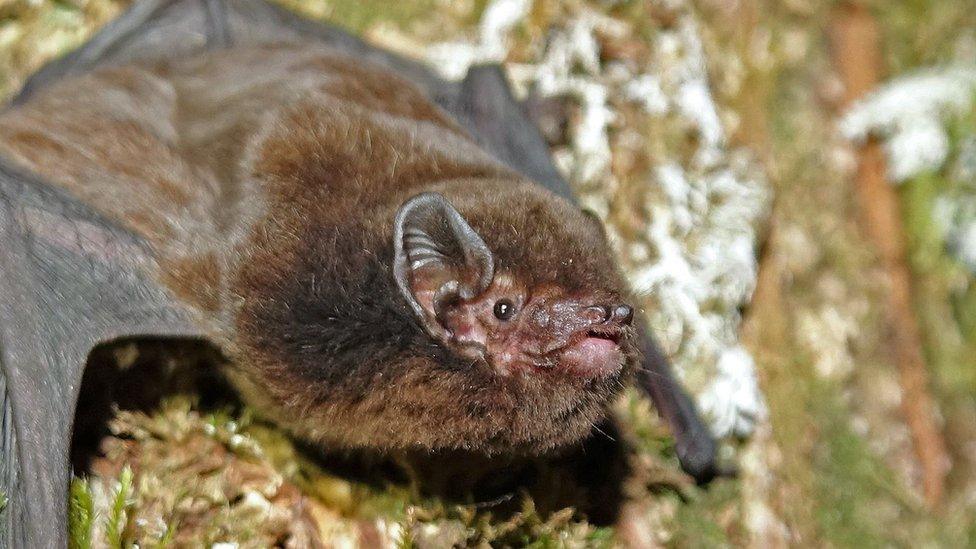New Zealand bat flies away with bird of the year award
- Published

The long-tailed bat is about the size of a thumb
A bat has been named as New Zealand's bird of the year, in a controversial move that has ruffled feathers.
The long-tailed bat had swooped in to clinch the title in an online poll.
Contest organisers had included the bat, one of the country's few land-based native mammals, to raise its profile as a critically endangered species.
But the victory has annoyed some, with one commenter saying the country had gone "batty".
Outraged bird-lovers cried fowl on Twitter, calling it a "total farce", a "stolen election", as well as more colourful and unprintable terms.
Some on social media also saw it as a much-needed public relations victory for bats, after a particularly trying two years.
But environmental group Forest and Bird, which organises the competition every year, said the bat's inclusion was not a bid to restore its image in the wake of the coronavirus pandemic.
that "a vote for bats is also a vote for predator control, habitat restoration, and climate action to protect our bats and their feathered neighbours!"
Allow Twitter content?
This article contains content provided by Twitter. We ask for your permission before anything is loaded, as they may be using cookies and other technologies. You may want to read and before accepting. To view this content choose āaccept and continueā.
The Bird of the Year contest has been seen as a way to raise awareness of New Zealand's biodiversity and species that are under threat.
In apparent defiance of the laws of scientific taxonomy, Forest and Bird had decided to include a land mammal for the first time this year, saying they faced similar challenges as birds.
The long-tailed bat, also known as the pekapeka-tou-roa and is only the size of a thumb, beat a flightless parrot to win the title.
More than 56,700 people cast their votes, with more than 7,000 for the bat and just over 4,000 for the kakapo, which won the contest last year.
This is not the first time the contest has flown into controversy.
In 2019, hundreds of votes were found to have come from Russia, spurring fears of voter fraud.
Organisers later determined that they were likely to have come from Russian bird-lovers, instead of hackers intent on manipulating the vote.
New Zealand crowns chubby parrot Bird of the Year
Related topics
- Published18 November 2020